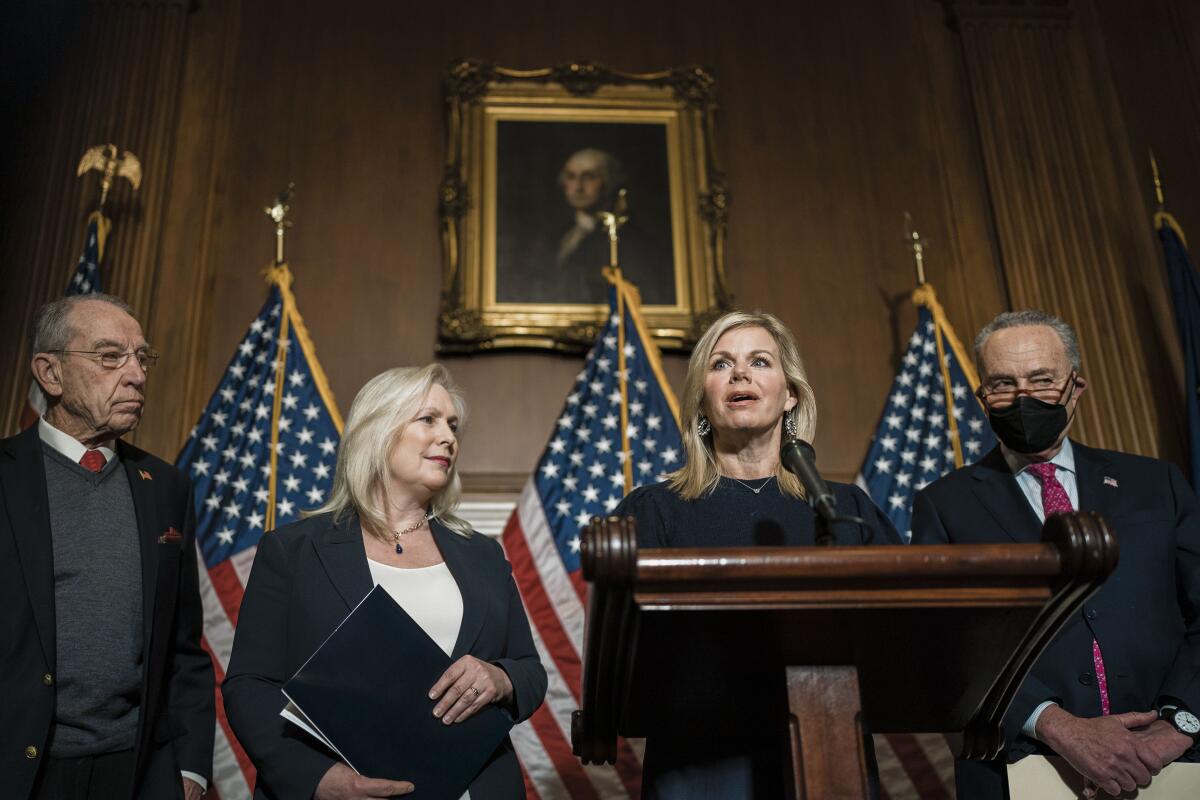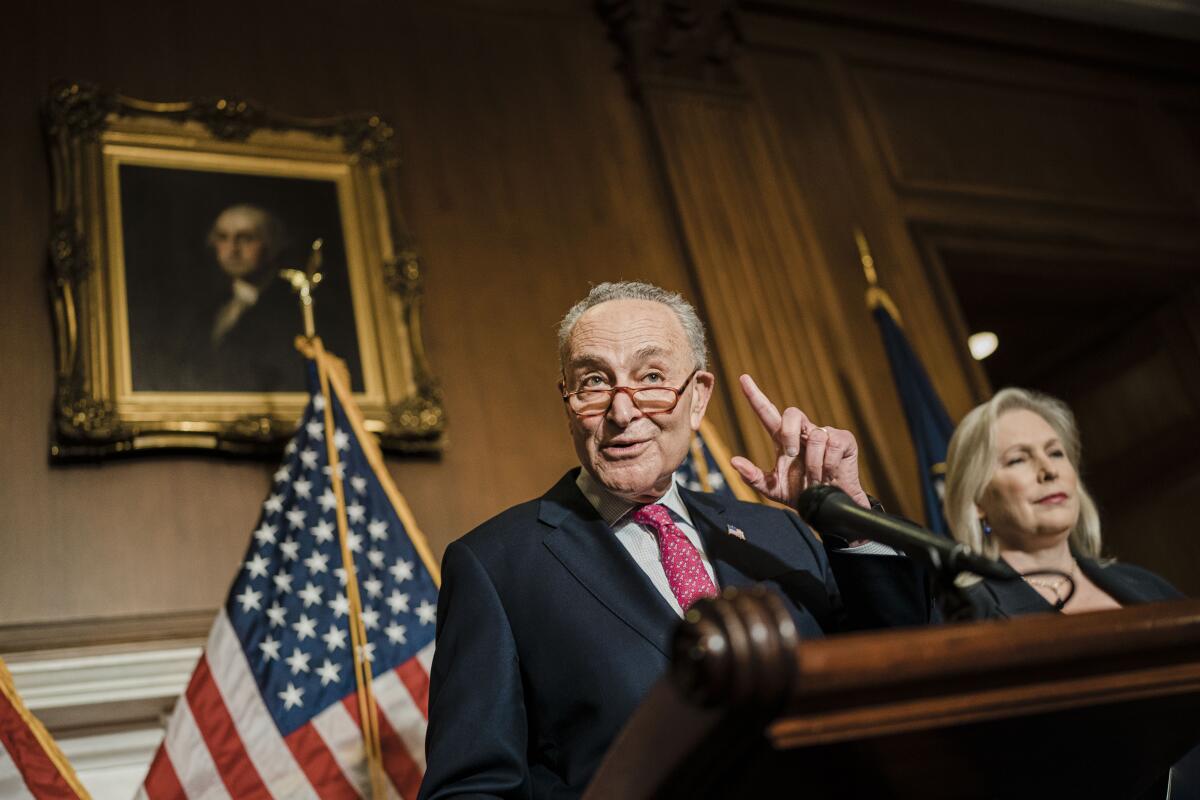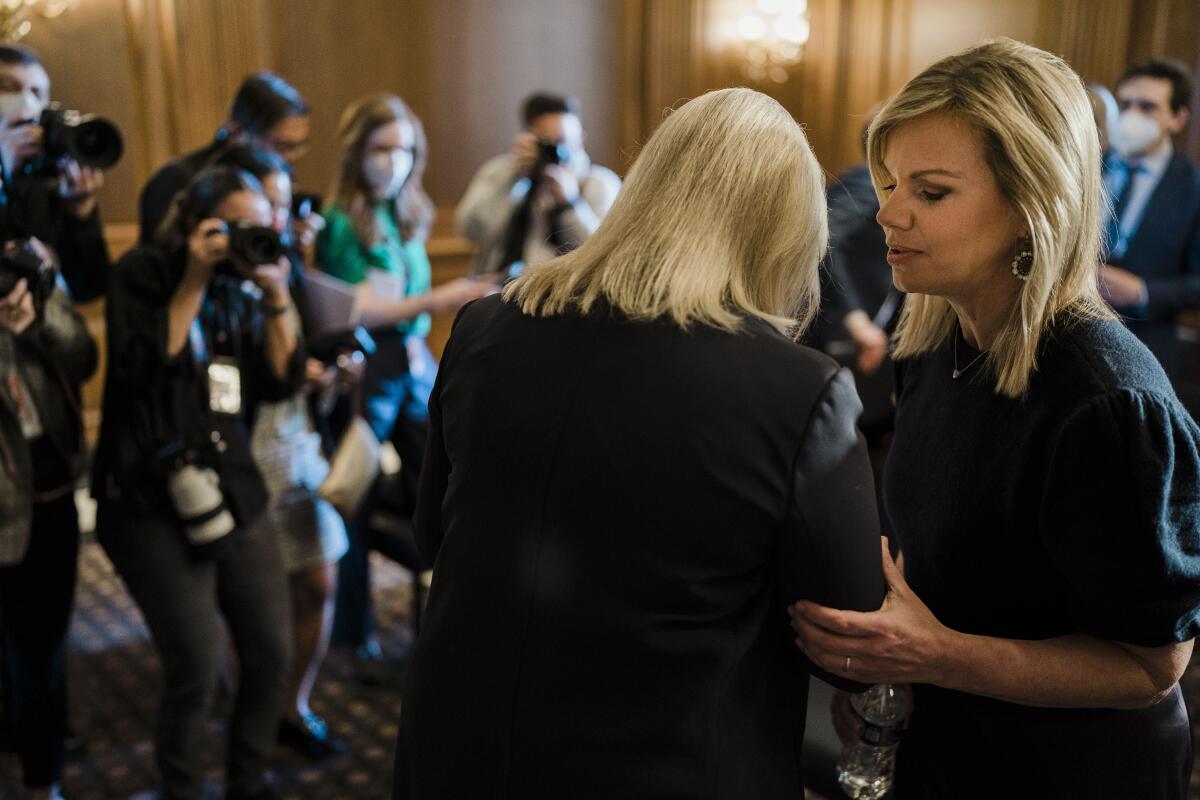Senate approves bill that bans mandatory arbitration in cases of sexual harassment and assault

- Share via
WASHINGTON — The Senate on Thursday voted to approve bipartisan legislation that would ban private companies from forcing employees and customers into arbitration to resolve sexual harassment and assault allegations, a victory for advocates and victims who have long complained that such legal agreements have enabled powerful men to evade accountability.
The legislation, which passed in a voice vote, goes to President Biden, who is expected to sign it.
Earlier this week, the House of Representatives passed the bill in a 335-97 vote, with 113 Republicans joining all Democrats in approving the measure.
An estimated 60 million workers have contracts that contain provisions requiring anyone alleging sexual harassment or assault by bosses or co-workers to enter arbitration to resolve the claims. The law will nullify those contract clauses.
Senate Majority Leader Charles E. Schumer (D-N.Y.) said in a statement that the bill is “momentous” and “painfully overdue.”
“For decades, arbitration clauses have been routinely tucked into the fine print of employment contracts,” his statement said. “Today they impact about sixty million Americans, and many people may not even realize such clauses affect them until it is too late.”

Former Fox News host Gretchen Carlson, who was among the first after the #MeToo movement emerged to publicly speak on the workplace harassment she faced, was a driving force behind the legislation. She learned that her contract had such an arbitration clause only as she was going to sue 21st Century Fox over harassment she says she endured from Roger Ailes, then the network’s chief executive.
“I had no idea signing on the dotted line meant that,” Carlson said in an interview.
Carlson overcame the arbitration clause by naming Ailes, not the network, in her lawsuit. Fox News’ parent company, which indemnified Ailes, ultimately settled the suit by paying Carlson a reported $20 million. Ailes died in 2017.
The former Fox host has spent the last five years lobbying Congress to pass a law banning such clauses. She found a champion in Rep. Cheri Bustos (D-Ill.) and later Sens. Lindsey Graham (R-S.C.) and Kirsten Gillibrand (D-N.Y.).
“After covering politics for 30 years, I have come to know that unless legislation is bipartisan it’s not going to pass,” Carlson said.
Graham said Thursday that he believes arbitration is generally good for businesses because it’s cheaper and less time-consuming than resolving disputes in court.
“But most people have no idea what they’re doing when they sign an employment contract,” the Republican said. “This is not bad for business. This is good for America.”
Graham said the bill would make it easier for alleged victims “to get justice without gaming the system” and said it was limited to sexual misconduct and would not remove unrelated claims in contracts.

Gillibrand said in a statement that the bill will give “survivors their day in court” while allowing them to publicly discuss their cases and “end the days of institutional protection for harassers.”
The #MeToo movement gained momentum after the revelation of abuse by Hollywood titan Harvey Weinstein, who is expected to spend two decades in prison for sexual assault. His case and others prompted people on social media and in podcasts to publicly disclose abuses they suffered.
More to Read
Get the L.A. Times Politics newsletter
Deeply reported insights into legislation, politics and policy from Sacramento, Washington and beyond. In your inbox three times per week.
You may occasionally receive promotional content from the Los Angeles Times.











